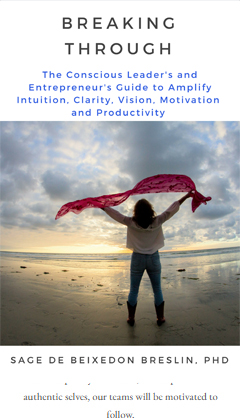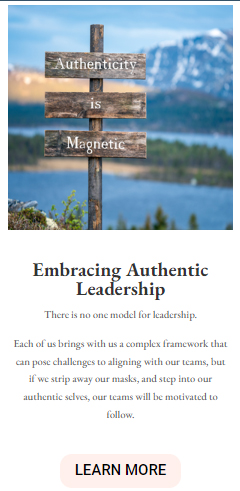“Love does not consist of gazing at each other, but in looking together in the same direction.”
~Antoine de Saint-Exupery
We like to believe that LOVE is the answer. We invest millions of dollars per year in the fantasy that if we love a partner enough, that person will be and do everything that we expect and desire. Most of us truly believe that love will carry any relationship through whatever obstacles come our way.
Unfortunately, that’s all it is: a fantasy. Healthy relationships require work every day. And, in order to feel motivated to do that kind of daily work on ourselves and in the relationship, we must achieve and maintain unwavering faith and commitment to one another.
In addition to that foundation, there are also some additional components that all healthy marriages can incorporate to help weather the storm:
- Individuality: the process by which a person develops a sense of self and maintains him/herself as a separate but interactive individual. More simply, individuality allows the person to be independent but connected.
- Acceptance (of self and others): acceptance of self includes the recognition of one’s strengths and deficits, of one’s values, beliefs, and opinions, and of one’s feelings and thoughts. It refers to the acceptance of responsibility for the feelings one has, the actions one takes and the consequences one must manage…. Acceptance of another refers to not taking responsibility for the other person’s feelings, thoughts and actions. Accepting your partner’s quirks, habits, and style doesn’t mean that you agree with what s/he does or says, it means that you accept his/her right to be separate and equal.
- Honesty: in order to be honest with someone else, it is imperative that the individual be honest him/herself. It is so easy to lie to ourselves and to “snow white” the truth, so that we don’t have to face the hard stuff. It is so much easier to accept, if we only need to accept the positive. It is often much more difficult to own up to the negative realities that may be part of our current and past lives…. When both parties are able to be honest with themselves, they can learn to be honest with each other…. Honesty within the relationship allows each partner to be respect by the other, even when the truth may be difficult to swallow.
- Respect: an individual who develops respect for oneself learns that positive qualities and actions increase a sense of self-esteem. This esteem inhibits an individual from putting oneself at risk and is a reminder that he or she is worth protecting.
- Consideration: when an individual respects his or her partner, he or she is considerate of the partner’s beliefs, interests, values, needs, desires, goals (to name a few things); and tries to avoid putting the partner down, making fun of him or her, or minimizing his or her importance. Consideration refers to the honest attention paid to oneself and to others.
- Communication & Understanding: one way that couples can learn to be considerate of one another’s needs, desires, thoughts, and feelings is through open, honest, assertive communication. Clear communication permits each party to maintain his/her own opinions and thoughts and to share them with another who agrees to respect them. Additionally, communication between the partners can promote understanding (both within each individual and between the partners).
- Trust: when the relationship promotes individuality, acceptance, honesty, respect, consideration and assertive communication, it will also likely enhance trust between the partners. As with acceptance and respect, the individual must first learn to trust him/herself before real trust can be invested in a partner. In order to trust oneself, one must know one’s boundaries and be able to predict one’s behavior. Trust develops from understanding and accepting one’s values, beliefs, feelings and position in the world…. The trust that is developed between two people can allow them to become vulnerable with one another, to reveal their true selves and to be affected by one another.
- Vulnerability: physical and emotional vulnerability are some of the hardest components of intimacy to achieve in a relationship. It requires trust, strength, and risk from both partners and demands that control be shared rather than placed within one individual or the other. It means agreeing to be open to the impact that another person may have on one’s life and being.
- Mutual Sexual Interaction: mutual sexual interaction can provide some of the best nourishment, play, and replenishment that a committed relationship can offer.
- Five basic conditions need to exist between two individuals for a healthy sexual relationship to develop. These include consent, equality, respect, trust and safety- all of which are required for the creation of intimacy between partners. For the promotion of healthy sexuality, partners must be compatible on a number of different levels:
- Sexual orientations must be compatible, although they may not be the same.
- Both partners must be aware of the level of sexual emergence of their partner and this must be in accordance with the desires of each person.
- Sexual interests of the couple must be equitable. This means that the types of sexual interactions, degree of involvement, and use of sexual enhancement aids must be agreed upon prior to the sexual interaction.
- Finally, couples must agree on rules and boundaries of their sexual relationship for sexual activity to be healthy and nourishing.
- Empathy: empathy must exist for oneself as well as for one’s partner. Empathy for self may involve looking at a part of oneself and allowing emotions to surface and be accepted…. Learning to empathize with another individual involves taking his/her perspective for the purpose of experiencing and being sensitive to the emotions associated with that perspective. When shame and emotional pain are overwhelming, the idea that someone is willing to walk around in your shoes for even a moment, in order to get closer to you and to help ease your pain, is often more reading than the most expensive material gift.
- Compassion: compassion, much like empathy, allows the individual to become more nurturing to self and others. Compassion refers to the experience of emotions which power acts of assistance, concern and love.
- Congruence: when a relationship has all of these qualities and attributes, it has a greater chance of enduring bad times and good. And, given some kind of congruence, or mutual interests, desires, values and beliefs, this kind of relationship can promote health and happiness over the ages, and to adapt to the transitions and countertransitions that both partners experience.
Developing these components of healthy relationship may take a lifetime of being together. But, if you and your partner are committed to keeping your love healthy and alive, it will be worth the effort!
Relationship coaching and counseling can provide a nurturing and objective environment to review the current structure and function of your relationship. Together, we can determine the health of your relational foundation, and revise anything that doesn’t support health and happiness together. Whether you’ve been together for a few months, a few years, a few decades or more, relationship coaching and counseling can enable you to enhance what you have together.

Sage Breslin is a prolific author. Her first book, Lovers & Survivors, as well as her work with Chicken Soup for the Soul, LLC have generated worldwide acclaim. Her second and third books, The Secret to Conception and The Secret to Conception Workbook, have enabled hundreds to resolve fertility challenges. Her fourth book, Daily Pearls: 365 Days of Sage Wisdom, blends Dr. Breslin’s musings with motivational quotes from a wide array of contributors and delivers an unforgettable and moving read. Her narrative storytelling style enables readers to experience life as she has lived it, and delivers the inspirational message so imperative for post-traumatic growth. While her colorful life has imbued her with perspective and insight, Dr. Breslin acknowledges that true wisdom is gained through collective conscious community. Her most recent book takes an even deeper dive into enabling conscious leaders to break through cognitive, emotional and energetic barriers to achieve authentic, empowered leadership. The importance of this form of transformational work is evident: Breaking Through: The Conscious Leader’s and Entrepreneur’s Guide to Amplify Intuition, Clarity, Vision, Motivation and Productivity hit best-seller status within 24 hours!









